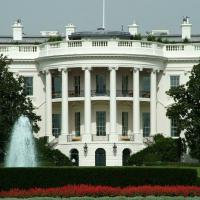Open Source Software Strengthens Its Presence in Government

Open source software has long been attractive to collaborative-minded developers, as well as those looking for a lower cost or better quality than may be found when dealing with only a single vendor. The latest group to discover the many advantages of open source: the U.S. government.
Government agencies have actually been consumers of open source software for years, but recently they’ve embraced the concept of open source even further. Dan Risacher, with the Department of Defense’s Office of the CIO, recently told Computerworld that the department “has been looking for ways to collaborate with other developers.”
By increasing the number of minds on a project, and the number of components being worked on, the opportunities for advancement are increased dramatically.
At the 2012 Red Hat Summit, Michael Tiemann, vice president of Open Source Affairs, pointed out the iterative approach’s advantages: “When it comes to the questions of innovation, one of the profound things that we have seen in the world of open source [software] is the power of incremental innovation versus the traditional big-bang theory of innovation.”
Open source software isn’t being used entirely across the board at the government level, and some proponents of the movement are asking why. 17,000 agents within the U.S. Immigration & Customs Enforcement (ICE) agency recently had their Blackberry phones replaced with Apple iPhones.
This move from one closed platform to another, rather than perhaps embracing Android phones and their open nature, shows that not every agency is ready for the “openness” of open source.
Outside the U.S., in South Africa for instance, the real value of open source software was recently debated.
Leon Louw, executive director of the Free Market Foundation, points out in the video below that freeware does exist in the open source market; but governments should not fall for the “myth” that software strong enough to run schools, courts, or the military is going to be free, or cheaper than that produced by a single entity.
As e-Governance rises, the implementation of open source software is sure to be just as varied as the governments that employ it. Whether innovation, security, or cost is the driving factor in a country's decision-making process, open source has its foot in the door of government.

